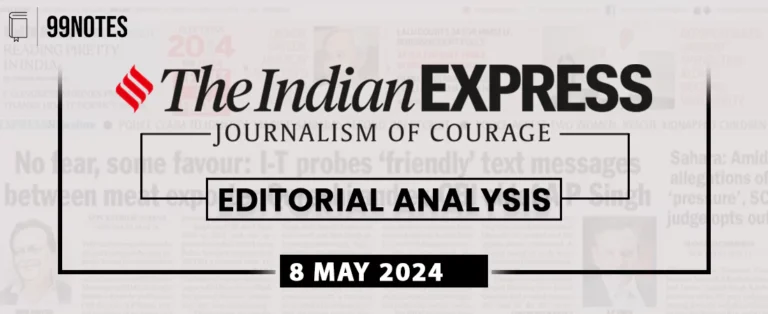13 December 2024 : Daily Answer Writing
Q1) What do you understand by Pressure Groups? Critically analyse their role in strengthening the democratic fabric of the country in the last decade.
(150 Words/10 Marks)
ANS:
A pressure group is an organised group of people formed to shape or influence public opinion or government policies as per their interests. Pressure groups are of varying types, from religious groups to business or trade associations, or think-tanks to charities.
Role of Pressure groups in strengthening the democratic fabric:
- Representation of Diverse Interests: (a) provide a voice to minority groups – caste/religion-based groups assert influence in politics/policies; (b) bring minority views to the forefront, hence, preventing majoritarianism; (c) platform to diverse groups like women/businesses/farmers etc. to protect their interest.
- Provide informed opinions and expertise: (a) providing detailed research, data, and policy recommendations – help the government in policy formulation through valuable research; (b) bringing in valuable expertise even in complex areas such as healthcare, environment, and education; (c) offer alternative sources of advice.
- Promote accountability and transparency in governance: (a) monitoring government actions/policies; (b) expose corruption, highlight inefficiencies, and demand better governance practices; (c) raising awareness and educating voters on government hits and misses;
- Increasing civic participation and promote social cohesion: (a) mobilize public opinion through campaigns, protests, and media engagement; (b) provide a platform for outlet of grievances and demands; (c) engage in grassroots politics by bringing young and disinterested people into the political sphere. E.g.: the Save Aarey Movement.
Criticisms against the functioning of Pressure Groups:
- Inequality in political influence: (a) some PGs disproportionately represent the interests of the wealthy and powerful; (b) power imbalances through access to policymakers, and media space; (c) business lobbies with more resources influence policies in favour of the elite, thus exacerbating inequalities; (d) domination of public discourse by more vocal groups.
- Policy paralysis / Unintended consequences: (a) competing interests and diverse opinions/lobbying often creates fragmented policy making process or a gridlock; (b) political mobilisation may result into social conflict and further division in society; (c) resisting progressive legislations & reforms; (d) methods such as strikes/protests etc create disruption for common citizens.
- Corruption: (a) practices such as lobbying is often done through corrupt practices including bribery and intimidation; (b) Intelligence Bureau report highlighted the role of foreign-funded NGOs in hindering the economic development of India at the behest of foreign influences.


